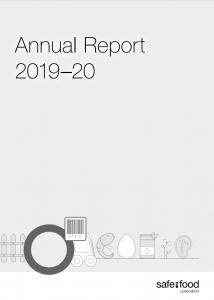 Safe Food’s annual report for 2019-2020 in now available on our website.
Safe Food’s annual report for 2019-2020 in now available on our website.
Queensland food businesses faced many challenges this past financial year, including bush fires, ongoing drought conditions, and the coronavirus pandemic.
Ensuring a safe, secure food supply chain has been of critical importance during this time. During the early stages of the pandemic, Safe Food officers continued to conduct audits and assessments of businesses classified as high risk using a modified compliance framework and suspended other routine on-site monitoring activities.
To reduce the possible risk of COVID-19 infection to officers and food businesses, on-site contact time was minimised. Other tools were used to ensure production systems and food safety risks were verified. These included digital communication conferences and remote documentation assessment.
Food regulation remains Safe Food’s core business. However, the value of our scientific, risk assessment approach to inform risk management proved to be a considerable asset to industry and other government agencies during the response to the COVID-19 pandemic.
A majority of Safe Food’s actions focused on helping businesses ensure they had suitable business continuity plans in place and measures in place to limit the impact of COVID-19 on their workforces. Safe Food developed a number of guidelines, checklists and regular, targeted communications with accredited businesses.
Despite the challenges of 2019–20, Safe Food issued 7478 accreditations, including 809 new applications, indicating that many businesses remain optimistic about the future of food production in Queensland.
A full copy of our Annual Report can be downloaded here.
